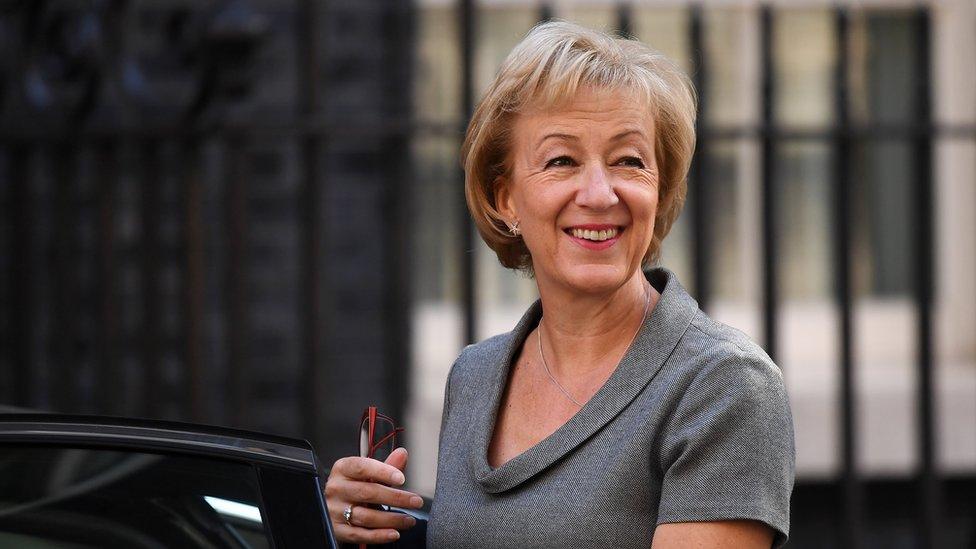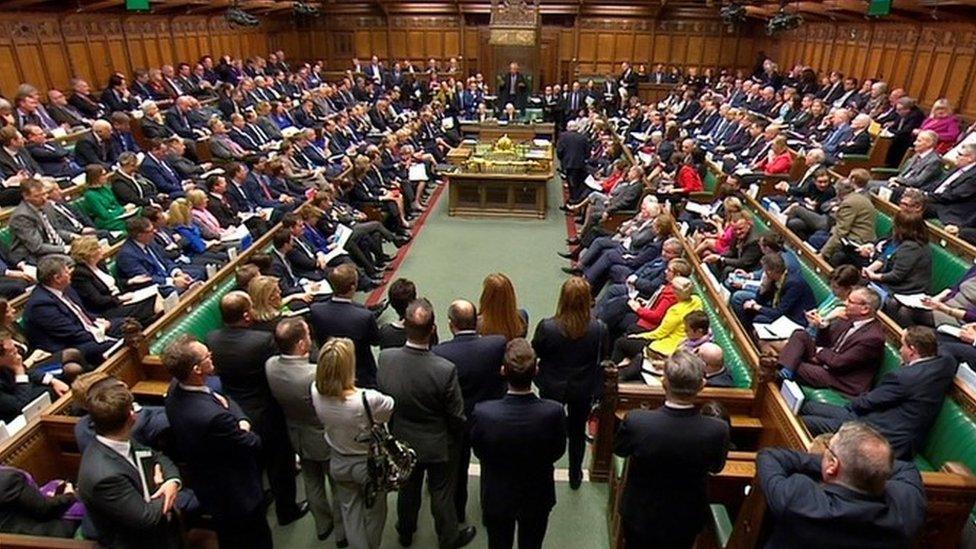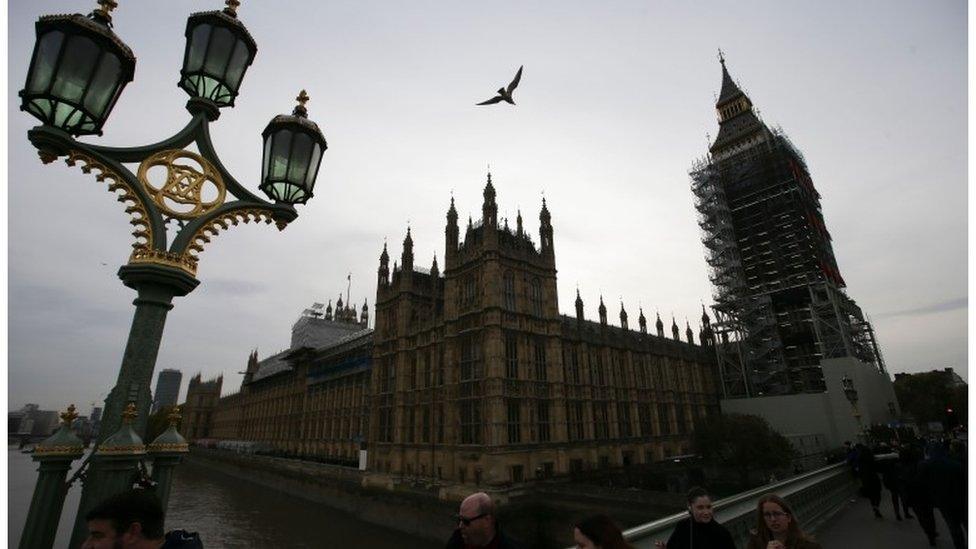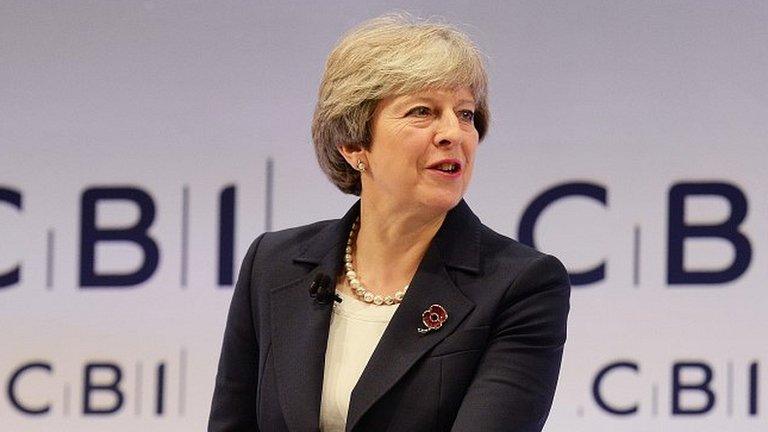New MPs' code 'risks cover-up claims'
- Published

Conservative MP Andrea Leadsom led the working group to look into a new process
Moves to give anonymity to all MPs under investigation risk "rolling back the openness" established after the expenses scandal, a senior MP has said.
Sir Kevin Barron warned: "It will be presented as MPs trying to cover up their misdoings."
The Parliamentary Commissioner for Standards has listed all MPs being investigated on her website since 2010.
Under a new behaviour code to deal with harassment, ongoing inquiries would not be routinely published.
Commons Leader Andrea Leadsom said it was "not about rolling back transparency" but that the standards commissioner's role had "significantly changed".
Under the new code, the standards commissioner would now consider complaints that arose from the new independent complaints and grievance policy (ICGP), as well as allegations of financial misdemeanours and breaches of the existing code of conduct.
The motion put forward by Mrs Leadsom said investigations into complaints of harassment must be confidential, and "for consistency and fairness, the Parliamentary Commissioner for Standards should no longer routinely publish information about individual investigations before those investigations are concluded".
"To have one process for non-ICGP and a separate one for ICGP is simply confusing," said Mrs Leadsom.
"This is a genuine attempt ... to put confidentiality at the heart, for the sake of the complainant."

Two government ministers - Damian Green and Michael Fallon - resigned over scandals last year, and a number of other politicians on both sides of the House were investigated over claims of sexual misconduct.
A survey of more than 1,300 parliamentary workers published in February found that 19% had experienced or witnessed sexual harassment or inappropriate behaviour in the previous year, with twice as many complaints from women than men.
MPs voted through the new code on Thursday, and rejected an amendment by Sir Kevin and other members of the Commons Standards Committee to stop anonymity being applied to all investigations.
Sir Kevin said the anonymity was the "one issue" on which his committee disagreed with the steering group lead by Mrs Leadsom.
"We strongly support the work that has been done to bring Parliament into the modern age in terms of personal conduct," he said, adding: "Not everyone in this institution has behaved in a morally decent way."
'Reputational damage'
He said they agreed that sexual harassment and bullying investigations should be confidential to give complainants confidence to come forward.
But he added: "We have considered carefully the (Commons) leader's argument for making this change and we understand why she has put them forward, but we do not think that they outweigh the reputational damage that may arise if we go ahead with this proposal as it is stated."
He told MPs: "The rules were agreed by the House some years ago in the wake of the expenses scandal and were seen as an important way to demonstrate transparency and openness."
He read out a letter from members of his committee who are not MPs, external, which backed the current practice and said: "Any proposals to limit this approach would be a detrimental step in continuing to build the credibility of the reputation of the House."
He also said previous efforts by the standards committee to expand the code of conduct to include "some aspects of personal behaviour" some years ago had been "undermined... by what I may call, I suppose, the forces of reaction."
Labour MP Jess Phillips voiced her concern about the change, telling MPs: "I do worry about how it looks in trying to pull back on transparency" and suggested it had been included as part of a deal "done in order to get this through".
She said, while she had no proof, she believed it was "a deal done by somebody in a whips office, somebody in a committee that controls one of our political parties".
Green Party MP Caroline Lucas added: "I do share the sneaking suspicion that was voiced by (Ms Phillips) when she said perhaps there were other forces at play here which are leading us to this direction."
SNP MP Pete Wishart said the issue had been the "most controversial, the most debated in the group" and he felt "conflicted" about it, and it should be "at the heart of the six-month review" of the code.
Mrs Leadsom said Westminster had been "rocked by allegations of bullying and harassment since last November" and the new behaviour code offered "a new start".
"Today we can demonstrate our determination to put our House in order and to ensure that in the future everyone will be treated with dignity and respect."
- Published17 July 2018

- Published19 March 2018

- Published12 July 2018

- Published6 November 2017
